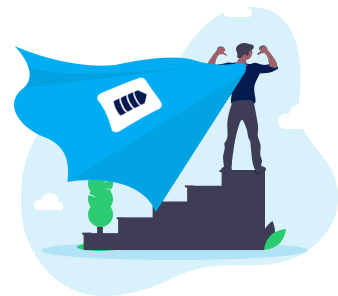paulamcbride
New Member
When we are given a new prescription, most of us happily go away and take our medicine just like the doctor ordered. We may not study the patient information particularly carefully, and we may not follow the given advice to the letter, but we cheerfully assume that, unless we do something particularly stupid, the medication will do us no harm. But… we could be wrong.
Faking it
There is a significant and growing international business in the manufacture and sale of counterfeit medicines. The World Health Organization (WHO) estimates that up to 20% of all medicines in some areas of the world are fake. Customs data from the European Union shows that 34 million counterfeit pills, valued at €89m, were seized between October and December 2008. The European Medicines Agency (EMEA) is warning that criminal gangs are currently busy trying to cash in on the H1N1 flu pandemic by selling fake or low-quality antiviral medicines and vaccines.
Counterfeit medicines, which can be either branded or generic, appear in a variety of guises. Some contain no active ingredients while others, according to industry sources, are laced with sugar, unrelated medicines or even rat poison. While the dangers of taking a medication containing traces of poison are obvious, counterfeit drugs that contain no active ingredients can be equally damaging if they deprive a patient of an essential treatment.
Many of the counterfeit drugs in circulation are purchased online, and patients should always be wary of obtaining medications in this way. However, fake drugs can also reach patients through apparently reputable pharmacies in cases when the supply chain is not 100% secure.
Pharmaceutical companies, regulators, law enforcement authorities, and healthcare professionals have joined forces to try to combat the threat of counterfeit medicines. The Partnership for Safe Medicines is a US-based group of organizations and individuals dedicated to protecting consumers from counterfeit or contraband medicines. The European Alliance for Access to Safe Medicines (EAASM) was founded in 2007 with the objective of fighting against counterfeit medicines and promoting patient safety around Europe.
Technology also has an important part to play in tackling the problem of counterfeit drugs. The US Food and Drug Administration (FDA) is developing an electronic pedigree (ePedigree) system, scheduled for launch in 2011, to track the movement of prescription drugs throughout the entire supply chain. This technology is intended to prevent the diversion or counterfeiting of drugs by allowing wholesalers and pharmacists to determine the identity of individual products. Other technological solutions include the use of radio frequency identification to track and identify pharmaceutical products by through individual serial numbers, while techniques such as Raman spectroscopy and Energy Dispersive X-Ray Diffraction (EDXRD) can be used to uncover counterfeit drugs while still inside their packaging.
It seems that the scale of the problem is starting to be appreciated by patients. In recent research carried out by ICM, on behalf of patient safety communications company, Aegate, 61 per cent of those surveyed in Europe were aware that prescription medicines could be faked and 79 per cent of consumers reported that they feared counterfeit medicine more than any other fake product. However, even with the combined efforts of industry, patients and regulatory authorities, we may have to learn to exercise a little more caution over the medications that we routinely receive.
__________________________________
Faking it
There is a significant and growing international business in the manufacture and sale of counterfeit medicines. The World Health Organization (WHO) estimates that up to 20% of all medicines in some areas of the world are fake. Customs data from the European Union shows that 34 million counterfeit pills, valued at €89m, were seized between October and December 2008. The European Medicines Agency (EMEA) is warning that criminal gangs are currently busy trying to cash in on the H1N1 flu pandemic by selling fake or low-quality antiviral medicines and vaccines.
Counterfeit medicines, which can be either branded or generic, appear in a variety of guises. Some contain no active ingredients while others, according to industry sources, are laced with sugar, unrelated medicines or even rat poison. While the dangers of taking a medication containing traces of poison are obvious, counterfeit drugs that contain no active ingredients can be equally damaging if they deprive a patient of an essential treatment.
Many of the counterfeit drugs in circulation are purchased online, and patients should always be wary of obtaining medications in this way. However, fake drugs can also reach patients through apparently reputable pharmacies in cases when the supply chain is not 100% secure.
Pharmaceutical companies, regulators, law enforcement authorities, and healthcare professionals have joined forces to try to combat the threat of counterfeit medicines. The Partnership for Safe Medicines is a US-based group of organizations and individuals dedicated to protecting consumers from counterfeit or contraband medicines. The European Alliance for Access to Safe Medicines (EAASM) was founded in 2007 with the objective of fighting against counterfeit medicines and promoting patient safety around Europe.
Technology also has an important part to play in tackling the problem of counterfeit drugs. The US Food and Drug Administration (FDA) is developing an electronic pedigree (ePedigree) system, scheduled for launch in 2011, to track the movement of prescription drugs throughout the entire supply chain. This technology is intended to prevent the diversion or counterfeiting of drugs by allowing wholesalers and pharmacists to determine the identity of individual products. Other technological solutions include the use of radio frequency identification to track and identify pharmaceutical products by through individual serial numbers, while techniques such as Raman spectroscopy and Energy Dispersive X-Ray Diffraction (EDXRD) can be used to uncover counterfeit drugs while still inside their packaging.
It seems that the scale of the problem is starting to be appreciated by patients. In recent research carried out by ICM, on behalf of patient safety communications company, Aegate, 61 per cent of those surveyed in Europe were aware that prescription medicines could be faked and 79 per cent of consumers reported that they feared counterfeit medicine more than any other fake product. However, even with the combined efforts of industry, patients and regulatory authorities, we may have to learn to exercise a little more caution over the medications that we routinely receive.
__________________________________





